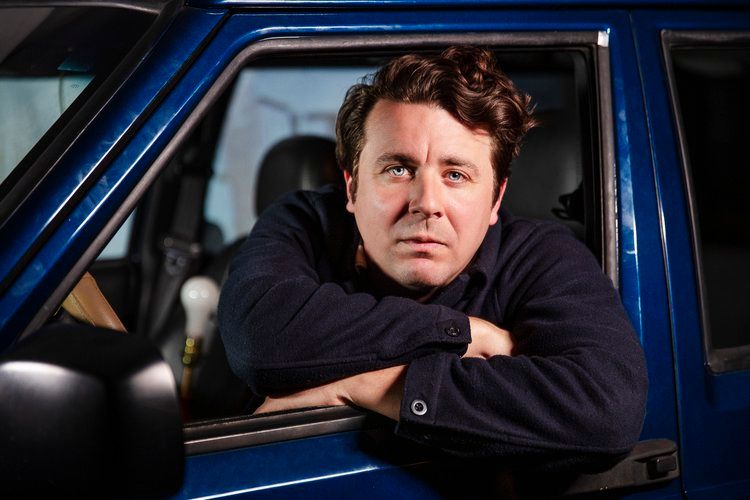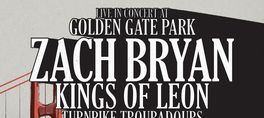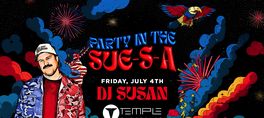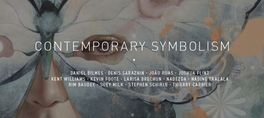When Joe Pug snuck into a Chicago studio in 2007 to record his debut EP, he had more misgivings than songs. "My most vivid recollections from those sessions," he says with fifteen years' hindsight, "involve sitting in the studio between takes and thinking to myself, I have no idea what I'm doing. I can barely play guitar. I can barely play harmonica. I can barely sing on key. I can barely keep time. But there was still something about these songs--something extra about these songs." They were austere and rough, wounded and bruised, yet they were full of vivid, visceral imagery and turns of phrase both clever and caustic, all delivered in a voice that came across as convincing precisely because it was so untrained and guileless.
A lifetime later, Nation of Heat remains his most popular release, with more than 20 million streams on Spotify alone, and he keeps these songs in his setlist even now, as though he's still trying to puzzle out their implications. That's partly why he decided to revisit and reinterpret them from a place of experience and perspective. Nation of Heat Revisited sounds livelier, rowdier, punchier, but also more sophisticated, headier. "It's how I would've wanted the record to sound in the first place if I'd had the money and the ability to do it this way. But I knew this album couldn't just be the original songs with a bar band behind me as I played an acoustic guitar. I didn't want to just add a rhythm section. It had to be a complete reimagining."
In other words, it couldn't be simply a do over. He had to transform the songs, breathe new life and meaning into them, and open them up to new possibilities. The skeleton key was "Hymn #101"--the opening track of the album and of his career, the song that plants a flag in rocky Americana soil. "I knew I had to get a powerful version of that song. If I didn't, the album wouldn't work at all. I probably spent 70 percent of my time working on it. I had three or four versions of it that I would play for people close to me, and they'd listen to it and shake their heads and say, 'That ain't it, man.'" For six months he tinkered with it at his home studio in Maryland, but nothing sounded like the dramatic reinvention that would define or justify revisiting Nation of Heat.
The breakthrough came when he sent the track to Mark Stepro, a Los Angeles-based drummer who toured with Pug in the 2010s. "Everything I'd done had this Americana shuffle to it, a kind of train rhythm underpinning everything, and it just wasn't working. Mark came in, listened to the song, and said he was going to make an aggressive choice on it. Could I commit to that? Or did I want something more conventional?"
Of course he wanted something new.
"I remember importing his drums, bringing them up in the mix in my studio, and just waiting for it. Then he comes thundering in, like a chase scene in an action movie." The new version opens with a church organ interrupted by a crisp guitar theme, then the drums enter just after he delivers that crucial line--"I've come to test the timbre of my heart." In 2007 "Hymn #101" was an introduction to a new artist intent on carving out a place for himself; in 2022 it's a reminder why the older artist still keeps at it.
After that song fell into place, the rest of Nation of Heat Revisited followed, full of moments that would have been impossible fifteen years ago: the gracefully uneasy sway of "Nobody's Man," the resigned yet promising mantra of "Speak Plainly, Diana," the grim lullaby melody of "Hymn #35." It helped that he had so many close friends that he could ask for contributions, all of whom responded enthusiastically. "I got to spend these amazing mornings going through these great takes from these great musicians, making composites of them, trying different versions, mixing them in different ways, arranging them in different ways. It was the most gratifying part of the process."
Pug built these songs from parts by Courtney Hartman, Carl Broemel (My Morning Jacket), Derry DeBorja (Jason Isbell & the 400 Unit), and Brandon Flowers (the Killers), among others. "What this project showed me is that there are a lot of different forms of wealth in this world and there's a very important kind of wealth that I didn't even know I had. I have this community that is committed to the same artistic values that I'm committed to."
There's another, larger community just on the outskirts of these songs: a nation of heat that has changed dramatically in the last 15 years. Pug recorded these songs in the waning years of the Bush era, and he rerecorded them at a moment of transition between administrations and between Covid surges, when America is more divided and more imperiled. "When every revolution is sponsored by the state," he sings on "I Take My Father's Drugs," "there's no bravery in bayonets tearing down the gates." Fifteen years ago he barked that line with a fiery outrage, but now there's a frustrated tone in his voice, as though the pointlessness of protest had become a national tragedy. "There are parts of that song that really examine how people engage in political activity and how they drape themselves in some sort of glory. They take this moralizing tone, but really what they're doing is trying to look cool in front of their friends. That's fine, I guess, but don't pretend you're saving the world by doing it."
Nation of Heat Revisited isn't meant to replace Nation of Heat. Rather, Pug intends this new album to comment on his debut and to sum up everything that has followed it. It's more thoughtful than a greatest hits package, more revealing than a memoir, and it retains the extra-ness of these songs. "I've never been far away from them," he says. "These songs are how I've paid my rent and my mortgage. They're how I've bought my kids diapers. When I got out on the road, these are the songs that people want to hear, and they're the songs I want to give people. I've spent more than a decade playing them in different cities all over America, all over the English-speaking world, and I trust that they're able to convey what I want them to convey. For a certain type of listener, I know they're going to connect.
~~~~~~~~
Joe Pug's new record "The Flood In Color" is nearly four years in the making. But that betrays the fact that the making of the album was one of the most natural and rewarding processes of his career. Produced by Kenneth Pattengale of the Milk Carton Kids and engineered by Matt Ross-Spang the album started with the goal of focusing on the simplicity of musicians playing together, live, in the same room. Recently relocating back to his childhood home in Prince Georges County, Maryland after many years spent in Chicago and Austin, Pug wanted take a new approach. The partnership with Pattengale proved to be an irresistible opportunity to do just that.
"The past couple of albums haven't always been the most enjoyable to record. The process can really bring on all sorts of pressures about what you should be doing and how you should be doing it, both internally and externally. Lots of 'Songs need to be 3 and half minutes long' and 'You need something that will work on AAA radio'. And the end result is this strange gravity that just weighs you down." Pattengale, a fan of Pug's music since the days so of his 2010 EP "Nation of Heat", was eager to try a back-to-basics approach.
"So Kenneth and I sort of had the idea to strip all that away. I was just going to write songs. And I was going to do it in a way that came naturally to me, and that I enjoyed. Get rid of all the external bullshit. Look....music isn't my entire life. Sometimes I want to write songs. But other times I want to read books. I want to play with my kid. I want to cook. A couple years ago I started a podcast. So that's sort of how I approached this one. I'll write songs the way I write songs. And when Kenneth and I had a few that we felt good about, we got together and dialed them in a bit further and worked on arrangements. Almost as friends as much as anything. And when we got them to a place we were happy with, we went to Nashville and recorded them. But through the whole affair there was really no timetable I imposed on it."
In the studio, the relaxed mood continued. "In the past I've been guilty of being a bit too intoxicated with the process of recording, and it sometimes took away from the pure joy of making music. This time we didn't spend weeks hold up in the studio obsessing over minute details. Kenneth put together an A+ group of musicians. And then we sat around a table, talked about the song for a bit, ran through it, and then pressed record. It was a revelation, and all the credit in the world to Kenneth for recognizing how important that would be. As a musician there are so many things that can get in the way of actually making music. What Kenneth did was to methodically strip those things away. "
In 2015 Pug also launched the aforementioned podcast, which has gone on to enjoy tremendous success. "The Working Songwriter" is a monthly hour-long conversation with some of today's best songwriters. Recent guests have included Josh Ritter, Amanda Palmer, Steve Earle, Brandon Flowers, Craig Finn, Ian MacKaye, Shakey Graves, Anais Mitchell and John Paul White. While its audience has grown, it's always been more of a labor of love for Pug. "I didn't hear the podcast I wanted to listen to, so I went ahead and just created it. From the very beginning I had a pretty clear vision of what I wanted it to be. From there it was just a matter of convincing anyone to be on it! This was 2015, so it was still pretty early days for podcasting, so you'd get a lot of confused replies. 'Wait, you want to interview me for an HOUR???'
"It's made me reach out to the small community of people that do this for a living and given me a real sense of community. It started out with lots of friends and colleagues that I already knew, but since then I've gotten the opportunity to talk to lots of artists I hadn't met prior. And it has been this absolutely incredible avenue to learning more about artists across genres. And in the process also learning about these very subtle but undeniable common threads that we all share because of our line of work."
show less
A lifetime later, Nation of Heat remains his most popular release, with more than 20 million streams on Spotify alone, and he keeps these songs in his setlist even now, as though he's still trying to puzzle out their implications. That's partly why he decided to revisit and reinterpret them from a place of experience and perspective. Nation of Heat Revisited sounds livelier, rowdier, punchier, but also more sophisticated, headier. "It's how I would've wanted the record to sound in the first place if I'd had the money and the ability to do it this way. But I knew this album couldn't just be the original songs with a bar band behind me as I played an acoustic guitar. I didn't want to just add a rhythm section. It had to be a complete reimagining."
In other words, it couldn't be simply a do over. He had to transform the songs, breathe new life and meaning into them, and open them up to new possibilities. The skeleton key was "Hymn #101"--the opening track of the album and of his career, the song that plants a flag in rocky Americana soil. "I knew I had to get a powerful version of that song. If I didn't, the album wouldn't work at all. I probably spent 70 percent of my time working on it. I had three or four versions of it that I would play for people close to me, and they'd listen to it and shake their heads and say, 'That ain't it, man.'" For six months he tinkered with it at his home studio in Maryland, but nothing sounded like the dramatic reinvention that would define or justify revisiting Nation of Heat.
The breakthrough came when he sent the track to Mark Stepro, a Los Angeles-based drummer who toured with Pug in the 2010s. "Everything I'd done had this Americana shuffle to it, a kind of train rhythm underpinning everything, and it just wasn't working. Mark came in, listened to the song, and said he was going to make an aggressive choice on it. Could I commit to that? Or did I want something more conventional?"
Of course he wanted something new.
"I remember importing his drums, bringing them up in the mix in my studio, and just waiting for it. Then he comes thundering in, like a chase scene in an action movie." The new version opens with a church organ interrupted by a crisp guitar theme, then the drums enter just after he delivers that crucial line--"I've come to test the timbre of my heart." In 2007 "Hymn #101" was an introduction to a new artist intent on carving out a place for himself; in 2022 it's a reminder why the older artist still keeps at it.
After that song fell into place, the rest of Nation of Heat Revisited followed, full of moments that would have been impossible fifteen years ago: the gracefully uneasy sway of "Nobody's Man," the resigned yet promising mantra of "Speak Plainly, Diana," the grim lullaby melody of "Hymn #35." It helped that he had so many close friends that he could ask for contributions, all of whom responded enthusiastically. "I got to spend these amazing mornings going through these great takes from these great musicians, making composites of them, trying different versions, mixing them in different ways, arranging them in different ways. It was the most gratifying part of the process."
Pug built these songs from parts by Courtney Hartman, Carl Broemel (My Morning Jacket), Derry DeBorja (Jason Isbell & the 400 Unit), and Brandon Flowers (the Killers), among others. "What this project showed me is that there are a lot of different forms of wealth in this world and there's a very important kind of wealth that I didn't even know I had. I have this community that is committed to the same artistic values that I'm committed to."
There's another, larger community just on the outskirts of these songs: a nation of heat that has changed dramatically in the last 15 years. Pug recorded these songs in the waning years of the Bush era, and he rerecorded them at a moment of transition between administrations and between Covid surges, when America is more divided and more imperiled. "When every revolution is sponsored by the state," he sings on "I Take My Father's Drugs," "there's no bravery in bayonets tearing down the gates." Fifteen years ago he barked that line with a fiery outrage, but now there's a frustrated tone in his voice, as though the pointlessness of protest had become a national tragedy. "There are parts of that song that really examine how people engage in political activity and how they drape themselves in some sort of glory. They take this moralizing tone, but really what they're doing is trying to look cool in front of their friends. That's fine, I guess, but don't pretend you're saving the world by doing it."
Nation of Heat Revisited isn't meant to replace Nation of Heat. Rather, Pug intends this new album to comment on his debut and to sum up everything that has followed it. It's more thoughtful than a greatest hits package, more revealing than a memoir, and it retains the extra-ness of these songs. "I've never been far away from them," he says. "These songs are how I've paid my rent and my mortgage. They're how I've bought my kids diapers. When I got out on the road, these are the songs that people want to hear, and they're the songs I want to give people. I've spent more than a decade playing them in different cities all over America, all over the English-speaking world, and I trust that they're able to convey what I want them to convey. For a certain type of listener, I know they're going to connect.
~~~~~~~~
Joe Pug's new record "The Flood In Color" is nearly four years in the making. But that betrays the fact that the making of the album was one of the most natural and rewarding processes of his career. Produced by Kenneth Pattengale of the Milk Carton Kids and engineered by Matt Ross-Spang the album started with the goal of focusing on the simplicity of musicians playing together, live, in the same room. Recently relocating back to his childhood home in Prince Georges County, Maryland after many years spent in Chicago and Austin, Pug wanted take a new approach. The partnership with Pattengale proved to be an irresistible opportunity to do just that.
"The past couple of albums haven't always been the most enjoyable to record. The process can really bring on all sorts of pressures about what you should be doing and how you should be doing it, both internally and externally. Lots of 'Songs need to be 3 and half minutes long' and 'You need something that will work on AAA radio'. And the end result is this strange gravity that just weighs you down." Pattengale, a fan of Pug's music since the days so of his 2010 EP "Nation of Heat", was eager to try a back-to-basics approach.
"So Kenneth and I sort of had the idea to strip all that away. I was just going to write songs. And I was going to do it in a way that came naturally to me, and that I enjoyed. Get rid of all the external bullshit. Look....music isn't my entire life. Sometimes I want to write songs. But other times I want to read books. I want to play with my kid. I want to cook. A couple years ago I started a podcast. So that's sort of how I approached this one. I'll write songs the way I write songs. And when Kenneth and I had a few that we felt good about, we got together and dialed them in a bit further and worked on arrangements. Almost as friends as much as anything. And when we got them to a place we were happy with, we went to Nashville and recorded them. But through the whole affair there was really no timetable I imposed on it."
In the studio, the relaxed mood continued. "In the past I've been guilty of being a bit too intoxicated with the process of recording, and it sometimes took away from the pure joy of making music. This time we didn't spend weeks hold up in the studio obsessing over minute details. Kenneth put together an A+ group of musicians. And then we sat around a table, talked about the song for a bit, ran through it, and then pressed record. It was a revelation, and all the credit in the world to Kenneth for recognizing how important that would be. As a musician there are so many things that can get in the way of actually making music. What Kenneth did was to methodically strip those things away. "
In 2015 Pug also launched the aforementioned podcast, which has gone on to enjoy tremendous success. "The Working Songwriter" is a monthly hour-long conversation with some of today's best songwriters. Recent guests have included Josh Ritter, Amanda Palmer, Steve Earle, Brandon Flowers, Craig Finn, Ian MacKaye, Shakey Graves, Anais Mitchell and John Paul White. While its audience has grown, it's always been more of a labor of love for Pug. "I didn't hear the podcast I wanted to listen to, so I went ahead and just created it. From the very beginning I had a pretty clear vision of what I wanted it to be. From there it was just a matter of convincing anyone to be on it! This was 2015, so it was still pretty early days for podcasting, so you'd get a lot of confused replies. 'Wait, you want to interview me for an HOUR???'
"It's made me reach out to the small community of people that do this for a living and given me a real sense of community. It started out with lots of friends and colleagues that I already knew, but since then I've gotten the opportunity to talk to lots of artists I hadn't met prior. And it has been this absolutely incredible avenue to learning more about artists across genres. And in the process also learning about these very subtle but undeniable common threads that we all share because of our line of work."
When Joe Pug snuck into a Chicago studio in 2007 to record his debut EP, he had more misgivings than songs. "My most vivid recollections from those sessions," he says with fifteen years' hindsight, "involve sitting in the studio between takes and thinking to myself, I have no idea what I'm doing. I can barely play guitar. I can barely play harmonica. I can barely sing on key. I can barely keep time. But there was still something about these songs--something extra about these songs." They were austere and rough, wounded and bruised, yet they were full of vivid, visceral imagery and turns of phrase both clever and caustic, all delivered in a voice that came across as convincing precisely because it was so untrained and guileless.
A lifetime later, Nation of Heat remains his most popular release, with more than 20 million streams on Spotify alone, and he keeps these songs in his setlist even now, as though he's still trying to puzzle out their implications. That's partly why he decided to revisit and reinterpret them from a place of experience and perspective. Nation of Heat Revisited sounds livelier, rowdier, punchier, but also more sophisticated, headier. "It's how I would've wanted the record to sound in the first place if I'd had the money and the ability to do it this way. But I knew this album couldn't just be the original songs with a bar band behind me as I played an acoustic guitar. I didn't want to just add a rhythm section. It had to be a complete reimagining."
In other words, it couldn't be simply a do over. He had to transform the songs, breathe new life and meaning into them, and open them up to new possibilities. The skeleton key was "Hymn #101"--the opening track of the album and of his career, the song that plants a flag in rocky Americana soil. "I knew I had to get a powerful version of that song. If I didn't, the album wouldn't work at all. I probably spent 70 percent of my time working on it. I had three or four versions of it that I would play for people close to me, and they'd listen to it and shake their heads and say, 'That ain't it, man.'" For six months he tinkered with it at his home studio in Maryland, but nothing sounded like the dramatic reinvention that would define or justify revisiting Nation of Heat.
The breakthrough came when he sent the track to Mark Stepro, a Los Angeles-based drummer who toured with Pug in the 2010s. "Everything I'd done had this Americana shuffle to it, a kind of train rhythm underpinning everything, and it just wasn't working. Mark came in, listened to the song, and said he was going to make an aggressive choice on it. Could I commit to that? Or did I want something more conventional?"
Of course he wanted something new.
"I remember importing his drums, bringing them up in the mix in my studio, and just waiting for it. Then he comes thundering in, like a chase scene in an action movie." The new version opens with a church organ interrupted by a crisp guitar theme, then the drums enter just after he delivers that crucial line--"I've come to test the timbre of my heart." In 2007 "Hymn #101" was an introduction to a new artist intent on carving out a place for himself; in 2022 it's a reminder why the older artist still keeps at it.
After that song fell into place, the rest of Nation of Heat Revisited followed, full of moments that would have been impossible fifteen years ago: the gracefully uneasy sway of "Nobody's Man," the resigned yet promising mantra of "Speak Plainly, Diana," the grim lullaby melody of "Hymn #35." It helped that he had so many close friends that he could ask for contributions, all of whom responded enthusiastically. "I got to spend these amazing mornings going through these great takes from these great musicians, making composites of them, trying different versions, mixing them in different ways, arranging them in different ways. It was the most gratifying part of the process."
Pug built these songs from parts by Courtney Hartman, Carl Broemel (My Morning Jacket), Derry DeBorja (Jason Isbell & the 400 Unit), and Brandon Flowers (the Killers), among others. "What this project showed me is that there are a lot of different forms of wealth in this world and there's a very important kind of wealth that I didn't even know I had. I have this community that is committed to the same artistic values that I'm committed to."
There's another, larger community just on the outskirts of these songs: a nation of heat that has changed dramatically in the last 15 years. Pug recorded these songs in the waning years of the Bush era, and he rerecorded them at a moment of transition between administrations and between Covid surges, when America is more divided and more imperiled. "When every revolution is sponsored by the state," he sings on "I Take My Father's Drugs," "there's no bravery in bayonets tearing down the gates." Fifteen years ago he barked that line with a fiery outrage, but now there's a frustrated tone in his voice, as though the pointlessness of protest had become a national tragedy. "There are parts of that song that really examine how people engage in political activity and how they drape themselves in some sort of glory. They take this moralizing tone, but really what they're doing is trying to look cool in front of their friends. That's fine, I guess, but don't pretend you're saving the world by doing it."
Nation of Heat Revisited isn't meant to replace Nation of Heat. Rather, Pug intends this new album to comment on his debut and to sum up everything that has followed it. It's more thoughtful than a greatest hits package, more revealing than a memoir, and it retains the extra-ness of these songs. "I've never been far away from them," he says. "These songs are how I've paid my rent and my mortgage. They're how I've bought my kids diapers. When I got out on the road, these are the songs that people want to hear, and they're the songs I want to give people. I've spent more than a decade playing them in different cities all over America, all over the English-speaking world, and I trust that they're able to convey what I want them to convey. For a certain type of listener, I know they're going to connect.
~~~~~~~~
Joe Pug's new record "The Flood In Color" is nearly four years in the making. But that betrays the fact that the making of the album was one of the most natural and rewarding processes of his career. Produced by Kenneth Pattengale of the Milk Carton Kids and engineered by Matt Ross-Spang the album started with the goal of focusing on the simplicity of musicians playing together, live, in the same room. Recently relocating back to his childhood home in Prince Georges County, Maryland after many years spent in Chicago and Austin, Pug wanted take a new approach. The partnership with Pattengale proved to be an irresistible opportunity to do just that.
"The past couple of albums haven't always been the most enjoyable to record. The process can really bring on all sorts of pressures about what you should be doing and how you should be doing it, both internally and externally. Lots of 'Songs need to be 3 and half minutes long' and 'You need something that will work on AAA radio'. And the end result is this strange gravity that just weighs you down." Pattengale, a fan of Pug's music since the days so of his 2010 EP "Nation of Heat", was eager to try a back-to-basics approach.
"So Kenneth and I sort of had the idea to strip all that away. I was just going to write songs. And I was going to do it in a way that came naturally to me, and that I enjoyed. Get rid of all the external bullshit. Look....music isn't my entire life. Sometimes I want to write songs. But other times I want to read books. I want to play with my kid. I want to cook. A couple years ago I started a podcast. So that's sort of how I approached this one. I'll write songs the way I write songs. And when Kenneth and I had a few that we felt good about, we got together and dialed them in a bit further and worked on arrangements. Almost as friends as much as anything. And when we got them to a place we were happy with, we went to Nashville and recorded them. But through the whole affair there was really no timetable I imposed on it."
In the studio, the relaxed mood continued. "In the past I've been guilty of being a bit too intoxicated with the process of recording, and it sometimes took away from the pure joy of making music. This time we didn't spend weeks hold up in the studio obsessing over minute details. Kenneth put together an A+ group of musicians. And then we sat around a table, talked about the song for a bit, ran through it, and then pressed record. It was a revelation, and all the credit in the world to Kenneth for recognizing how important that would be. As a musician there are so many things that can get in the way of actually making music. What Kenneth did was to methodically strip those things away. "
In 2015 Pug also launched the aforementioned podcast, which has gone on to enjoy tremendous success. "The Working Songwriter" is a monthly hour-long conversation with some of today's best songwriters. Recent guests have included Josh Ritter, Amanda Palmer, Steve Earle, Brandon Flowers, Craig Finn, Ian MacKaye, Shakey Graves, Anais Mitchell and John Paul White. While its audience has grown, it's always been more of a labor of love for Pug. "I didn't hear the podcast I wanted to listen to, so I went ahead and just created it. From the very beginning I had a pretty clear vision of what I wanted it to be. From there it was just a matter of convincing anyone to be on it! This was 2015, so it was still pretty early days for podcasting, so you'd get a lot of confused replies. 'Wait, you want to interview me for an HOUR???'
"It's made me reach out to the small community of people that do this for a living and given me a real sense of community. It started out with lots of friends and colleagues that I already knew, but since then I've gotten the opportunity to talk to lots of artists I hadn't met prior. And it has been this absolutely incredible avenue to learning more about artists across genres. And in the process also learning about these very subtle but undeniable common threads that we all share because of our line of work."
read more
A lifetime later, Nation of Heat remains his most popular release, with more than 20 million streams on Spotify alone, and he keeps these songs in his setlist even now, as though he's still trying to puzzle out their implications. That's partly why he decided to revisit and reinterpret them from a place of experience and perspective. Nation of Heat Revisited sounds livelier, rowdier, punchier, but also more sophisticated, headier. "It's how I would've wanted the record to sound in the first place if I'd had the money and the ability to do it this way. But I knew this album couldn't just be the original songs with a bar band behind me as I played an acoustic guitar. I didn't want to just add a rhythm section. It had to be a complete reimagining."
In other words, it couldn't be simply a do over. He had to transform the songs, breathe new life and meaning into them, and open them up to new possibilities. The skeleton key was "Hymn #101"--the opening track of the album and of his career, the song that plants a flag in rocky Americana soil. "I knew I had to get a powerful version of that song. If I didn't, the album wouldn't work at all. I probably spent 70 percent of my time working on it. I had three or four versions of it that I would play for people close to me, and they'd listen to it and shake their heads and say, 'That ain't it, man.'" For six months he tinkered with it at his home studio in Maryland, but nothing sounded like the dramatic reinvention that would define or justify revisiting Nation of Heat.
The breakthrough came when he sent the track to Mark Stepro, a Los Angeles-based drummer who toured with Pug in the 2010s. "Everything I'd done had this Americana shuffle to it, a kind of train rhythm underpinning everything, and it just wasn't working. Mark came in, listened to the song, and said he was going to make an aggressive choice on it. Could I commit to that? Or did I want something more conventional?"
Of course he wanted something new.
"I remember importing his drums, bringing them up in the mix in my studio, and just waiting for it. Then he comes thundering in, like a chase scene in an action movie." The new version opens with a church organ interrupted by a crisp guitar theme, then the drums enter just after he delivers that crucial line--"I've come to test the timbre of my heart." In 2007 "Hymn #101" was an introduction to a new artist intent on carving out a place for himself; in 2022 it's a reminder why the older artist still keeps at it.
After that song fell into place, the rest of Nation of Heat Revisited followed, full of moments that would have been impossible fifteen years ago: the gracefully uneasy sway of "Nobody's Man," the resigned yet promising mantra of "Speak Plainly, Diana," the grim lullaby melody of "Hymn #35." It helped that he had so many close friends that he could ask for contributions, all of whom responded enthusiastically. "I got to spend these amazing mornings going through these great takes from these great musicians, making composites of them, trying different versions, mixing them in different ways, arranging them in different ways. It was the most gratifying part of the process."
Pug built these songs from parts by Courtney Hartman, Carl Broemel (My Morning Jacket), Derry DeBorja (Jason Isbell & the 400 Unit), and Brandon Flowers (the Killers), among others. "What this project showed me is that there are a lot of different forms of wealth in this world and there's a very important kind of wealth that I didn't even know I had. I have this community that is committed to the same artistic values that I'm committed to."
There's another, larger community just on the outskirts of these songs: a nation of heat that has changed dramatically in the last 15 years. Pug recorded these songs in the waning years of the Bush era, and he rerecorded them at a moment of transition between administrations and between Covid surges, when America is more divided and more imperiled. "When every revolution is sponsored by the state," he sings on "I Take My Father's Drugs," "there's no bravery in bayonets tearing down the gates." Fifteen years ago he barked that line with a fiery outrage, but now there's a frustrated tone in his voice, as though the pointlessness of protest had become a national tragedy. "There are parts of that song that really examine how people engage in political activity and how they drape themselves in some sort of glory. They take this moralizing tone, but really what they're doing is trying to look cool in front of their friends. That's fine, I guess, but don't pretend you're saving the world by doing it."
Nation of Heat Revisited isn't meant to replace Nation of Heat. Rather, Pug intends this new album to comment on his debut and to sum up everything that has followed it. It's more thoughtful than a greatest hits package, more revealing than a memoir, and it retains the extra-ness of these songs. "I've never been far away from them," he says. "These songs are how I've paid my rent and my mortgage. They're how I've bought my kids diapers. When I got out on the road, these are the songs that people want to hear, and they're the songs I want to give people. I've spent more than a decade playing them in different cities all over America, all over the English-speaking world, and I trust that they're able to convey what I want them to convey. For a certain type of listener, I know they're going to connect.
~~~~~~~~
Joe Pug's new record "The Flood In Color" is nearly four years in the making. But that betrays the fact that the making of the album was one of the most natural and rewarding processes of his career. Produced by Kenneth Pattengale of the Milk Carton Kids and engineered by Matt Ross-Spang the album started with the goal of focusing on the simplicity of musicians playing together, live, in the same room. Recently relocating back to his childhood home in Prince Georges County, Maryland after many years spent in Chicago and Austin, Pug wanted take a new approach. The partnership with Pattengale proved to be an irresistible opportunity to do just that.
"The past couple of albums haven't always been the most enjoyable to record. The process can really bring on all sorts of pressures about what you should be doing and how you should be doing it, both internally and externally. Lots of 'Songs need to be 3 and half minutes long' and 'You need something that will work on AAA radio'. And the end result is this strange gravity that just weighs you down." Pattengale, a fan of Pug's music since the days so of his 2010 EP "Nation of Heat", was eager to try a back-to-basics approach.
"So Kenneth and I sort of had the idea to strip all that away. I was just going to write songs. And I was going to do it in a way that came naturally to me, and that I enjoyed. Get rid of all the external bullshit. Look....music isn't my entire life. Sometimes I want to write songs. But other times I want to read books. I want to play with my kid. I want to cook. A couple years ago I started a podcast. So that's sort of how I approached this one. I'll write songs the way I write songs. And when Kenneth and I had a few that we felt good about, we got together and dialed them in a bit further and worked on arrangements. Almost as friends as much as anything. And when we got them to a place we were happy with, we went to Nashville and recorded them. But through the whole affair there was really no timetable I imposed on it."
In the studio, the relaxed mood continued. "In the past I've been guilty of being a bit too intoxicated with the process of recording, and it sometimes took away from the pure joy of making music. This time we didn't spend weeks hold up in the studio obsessing over minute details. Kenneth put together an A+ group of musicians. And then we sat around a table, talked about the song for a bit, ran through it, and then pressed record. It was a revelation, and all the credit in the world to Kenneth for recognizing how important that would be. As a musician there are so many things that can get in the way of actually making music. What Kenneth did was to methodically strip those things away. "
In 2015 Pug also launched the aforementioned podcast, which has gone on to enjoy tremendous success. "The Working Songwriter" is a monthly hour-long conversation with some of today's best songwriters. Recent guests have included Josh Ritter, Amanda Palmer, Steve Earle, Brandon Flowers, Craig Finn, Ian MacKaye, Shakey Graves, Anais Mitchell and John Paul White. While its audience has grown, it's always been more of a labor of love for Pug. "I didn't hear the podcast I wanted to listen to, so I went ahead and just created it. From the very beginning I had a pretty clear vision of what I wanted it to be. From there it was just a matter of convincing anyone to be on it! This was 2015, so it was still pretty early days for podcasting, so you'd get a lot of confused replies. 'Wait, you want to interview me for an HOUR???'
"It's made me reach out to the small community of people that do this for a living and given me a real sense of community. It started out with lots of friends and colleagues that I already knew, but since then I've gotten the opportunity to talk to lots of artists I hadn't met prior. And it has been this absolutely incredible avenue to learning more about artists across genres. And in the process also learning about these very subtle but undeniable common threads that we all share because of our line of work."
show less
Date/Times:
The Chapel
7 Upcoming Events
777 Valencia Street, San Francisco, CA 94110
The Best Events
Every Week in Your Inbox
From Our Sponsors
UPCOMING EVENTS
Great suggestion! We'll be in touch.
Event reviewed successfully.









